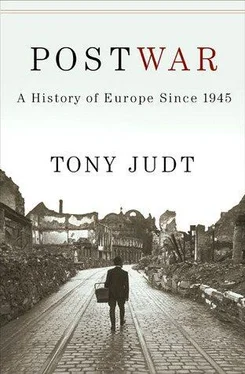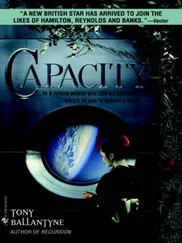But if patriotism for Europe could find a way to reach beyond itself, to capture the spirit of Heine’s idealized France, ‘stretching and expanding to embrace the whole of the civilized world’, then something more was now possible. The twentieth century—America’s Century—had seen Europe plunge into the abyss. The old continent’s recovery had been a slow and uncertain process. In some ways it would never be complete: America would have the biggest army and China would make more, and cheaper, goods. But neither America nor China had a serviceable model to propose for universal emulation. In spite of the horrors of their recent past—and in large measure because of them—it was Europeans who were now uniquely placed to offer the world some modest advice on how to avoid repeating their own mistakes. Few would have predicted it sixty years before, but the twenty-first century might yet belong to Europe.
EPILOGUE
From the House of the Dead
AN ESSAY ON MODERN EUROPEAN MEMORY
‘The problem of evil will be the fundamental problem of postwar intellectual life in Europe—as death became the fundamental problem after the last war’.
Hannah Arendt (1945)
‘Forgetting, I would even go so far as to say historical error, is a crucial factor in the creation of a nation; thus the progress of historical studies is often a danger for national identity… The essence of a nation is that all individuals have many things in common, and also that they have forgotten many things’.
Ernest Renan
‘All historical work on the events of this period will have to be pursued or considered in relation to the events of Auschwitz… Here, all historicization reaches its limits’.
Saul Friedlander
For Jews, concluded Heinrich Heine, baptism is their ‘European entry ticket’. But that was in 1825, when the price for admission to the modern world was the relinquishing of an oppressive heritage of Jewish difference and isolation. Today, the price of admission to Europe has changed. In an ironic twist that Heine—with his prophetic intimations of ‘wild, dark times rumbling towards us’—would have appreciated better than anyone, those who would become full Europeans in the dawn of the twenty-first century must first assume a new and far more oppressive heritage. Today the pertinent European reference is not baptism. It is extermination.
Holocaust recognition is our contemporary European entry ticket. In 2004 President Kwasniewski of Poland—seeking to close a painful chapter in his nation’s past and bring Poland into line with its EU partners—officially acknowledged the wartime sufferings of Polish Jews, including their victimization at the hands of Poles themselves. Even Romania’s outgoing President Iliescu, in a concession to his country’s ambition to join the European Union, was constrained the following year to concede what he and his colleagues had long and strenuously denied: that Romania, too, played its part in the destruction of the Jews of Europe…
To be sure, there are other criteria for full participation in the family of Europe. Turkey’s continuing refusal to acknowledge the ‘genocide’ of its Armenian population in 1915 will be an impediment to its application for EU membership, just as Serbia will continue to languish on the European doorstep until its political class takes responsibility for the mass murders and other crimes of the Yugoslav wars. But the reason crimes like these now carry such a political charge—and the reason ‘Europe’ has invested itself with the responsibility to make sure that attention is paid to them and to define ‘Europeans’ as people who do pay attention to them—is because they are partial instances (in this case before and after the fact respectively) of the crime: the attempt by one group of Europeans to exterminate every member of another group of Europeans, here on European soil, within still living memory.
Hitler’s ‘final solution to the Jewish problem’ in Europe is not only the source of crucial areas of post-war international jurisprudence—‘genocide’ or ‘crimes against humanity’. It also adjudicates the moral (and in certain European countries the legal) standing of those who pronounce upon it. To deny or belittle the Shoah —the Holocaust—is to place yourself beyond the pale of civilized public discourse. That is why mainstream politicians shun, so far as they can, the company of demagogues like Jean-Marie Le Pen. The Holocaust today is much more than just another undeniable fact about a past that Europeans can no longer choose to ignore. As Europe prepares to leave World War Two behind—as the last memorials are inaugurated, the last surviving combatants and victims honoured—the recovered memory of Europe’s dead Jews has become the very definition and guarantee of the continent’s restored humanity. It wasn’t always so.
There was never any mystery about what had happened to Europe’s Jews. That an estimated 6 million of them were put to death during the Second World War was widely accepted within a few months of the war’s end. The handful of survivors, whether in the displaced persons’ camps or in their countries of origin, paid implicit witness to the number of dead. Of 126,000 Jews removed from Austria, 4,500 returned after the war. In the Netherlands, where there had been 140,000 Jews before the war, 110,000 were deported—of whom fewer than 5,000 returned. In France, of 76,000 (mostly foreign-born) Jews who were deported during the years 1940-44, less than 3 percent survived. Further east, the figures were even worse: of Poland’s pre-war population of over 3 million Jews, fully 97.5 percent were exterminated. In Germany itself, in May 1945, there remained just 21,450 of the country’s 600,000 Jews.
The returning remnant was not much welcomed. After years of anti-Semitic propaganda, local populations everywhere were not only disposed to blame ‘Jews’ in the abstract for their own suffering but were distinctly sorry to see the return of men and women whose jobs, possessions and apartments they had purloined. In the 4th arrondissement of Paris, on April 19th 1945, hundreds of people demonstrated in protest when a returning Jewish deportee tried to reclaim his (occupied) apartment. Before it was dispersed, the demonstration degenerated into a near-riot, the crowd screaming ‘La France aux français!’ The venerable French Catholic philosopher Gabriel Marcel would doubtless not have resorted to such language. But he was not embarrassed to write a few months later, in the journal Témoignage Chrétien , of the ‘overweening presumption’ of ‘the Jews’ and their urge to ‘take everything over’.
Little wonder that the future French government minister Simone Weil could write, of her return from Bergen Belsen: ‘We had the feeling that our lives did not count; and yet there were so very few of us’. In France (as in Belgium) deported resisters who had survived and now returned were treated as heroes: the saviours of their nation’s honour. But Jews, deported not for their politics but on account of their race, could serve no such useful purpose. In any case De Gaulle (like Churchill) was curiously blind to the racial specificity of Hitler’s victims, understanding Nazism in the context of Prussian militarism instead. At Nürnberg, the French prosecutor François de Menthon was uncomfortable with the very concept of ‘crimes against humanity’—he preferred ‘crimes against peace’—and throughout the trial he made no reference to the deportation or murder of Jews. [414]
Nearly three years later an editorial in Le Monde on January 11th 1948, headed ‘The survivors of the death camps’, managed to speak movingly of ‘280,000 deportees, 25,000 survivors’ without once mentioning the word ‘Jew’. Under legislation passed in 1948, the term ‘déportés’ could be applied only to French citizens or residents deported for political reasons or for resisting the occupier. No distinction was made regarding the camp to which someone was sent or their fate upon arrival. Thus Jewish children who were locked into trains and shipped to Auschwitz for gassing were described in official documents as ‘political deportees’. With mordant if unintended irony these children, most of whom were the sons and daughters of foreign-born Jews and who had been forcibly separated from their parents by French gendarmes, were then commemorated in documents and upon plaques as having ‘died for France’. [415]
Читать дальше












